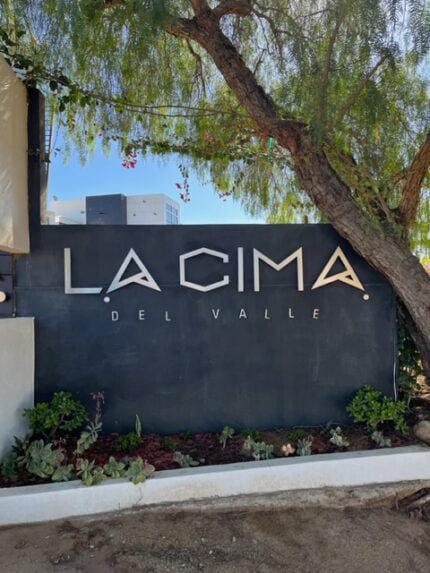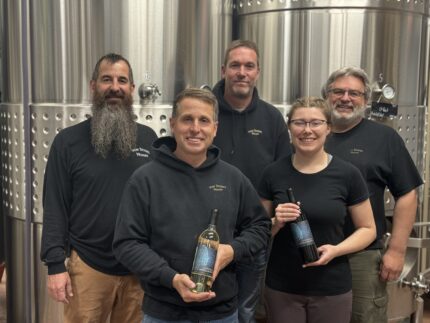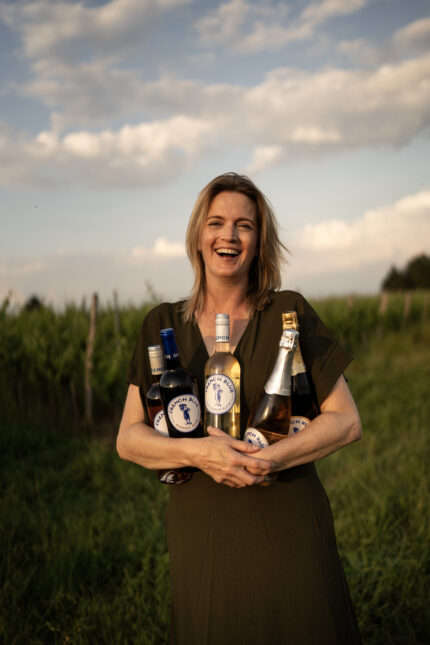Press trips are amazing opportunities to plunge into a region, meet winemakers, and have someone curate the region’s most interesting wines. I’ve thoroughly enjoyed almost every press trip I’ve taken. But when you are planning a trip with some favorite girlfriends whom you haven’t caught up with since 2019, rest and relaxation become key themes of a group consumed with work commitments and personal priorities. Our trip to Valle de Guadalupe became the perfect place for that trip. I have very limited experience with Mexican wines, but I was happy to learn more.

While the four of us write about wine in some capacity, wine was not the spotlight (meaning we didn’t arrive with a packed agenda hopping from place to place with the understanding we’d be posting from the road and when we got home). We were just excited to taste gourmet food and wine, hanging out with each other versus getting kudos from others on our new discoveries.
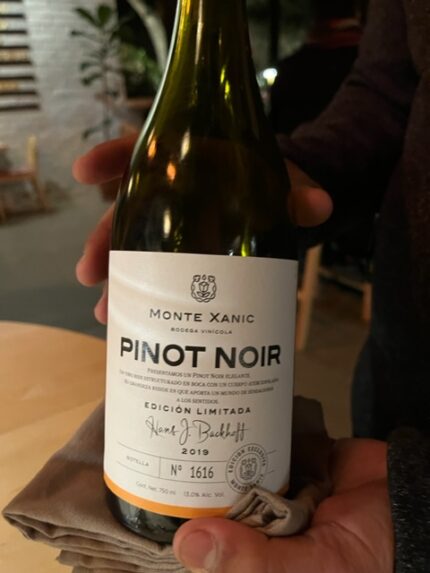
And let me tell you that Valle de Guadalupe is a special place and there certainly are good wines in Mexico that are being produced. Today I’m not diving into the wines of the region, but about the hospitality of the region.
History of Wine in Mexico
Dominican priests planted the first vines at the Misión de Nuestra Señora de Guadalupe del Norte aka the Guadalupe Valle in the mid 1800s. The wine was primarily used for religious ceremonies and to send back to Spain. Over time, winemakers from Europe who noticed the region’s winemaking potential.
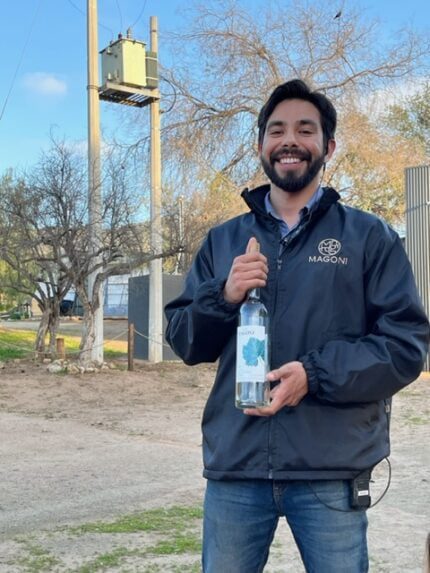
Today there are more than 200 wineries making wine from all types of grapes – many blending non-conventional grapes together. What makes Baja wine country so interesting is the freedom and creativity winemakers show with experimentation.
In the 1990s, winemakers banded together to formally market Valle de Guadalupe as a destination. The region is located just south of San Diego and has been referred to as “Mexico’s Napa Valley.” I thoroughly enjoyed the sparkling winess, the Chenin Blanc and Nebbiolo’s that I tried, and I had one pinot noir that rocked (see pic above)!
There are no appellation rules in the area and while some take that to mean there is not enough standardization across the region, we found it allows quality winemakers to experiment with blending non-traditional grapes.
And the food and prices are good.
So, I thought I’d give my five discoveries of the region followed by a few things you need to know to optimize your trip.
- First, the food! OMG the food. Imagine gourmet meals at every turn, food and wine pairings with the same innovation for food as we saw with wines.
A few favorite restaurants:
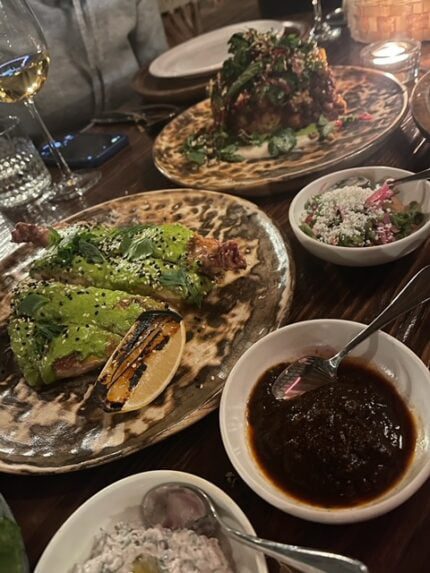
Animalon Baja — Led by chef Oscar Torres, an LA native with an impressive Michelin star resume, he has a globally influenced menu. I loved this meal. This also made me fall in love with the Henri Lurton Chenin Blanc, a world-class French winemaker who saw the potential of this area. One of my favorite meals!
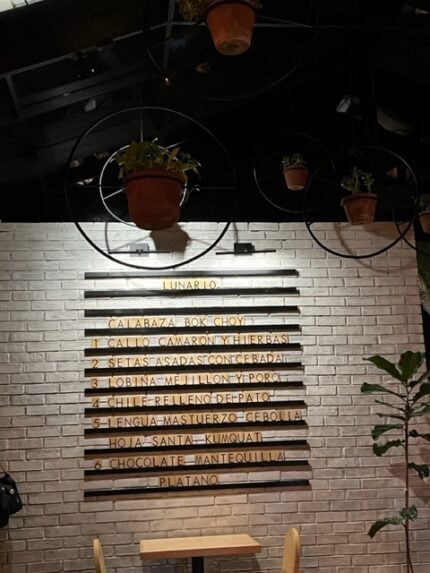
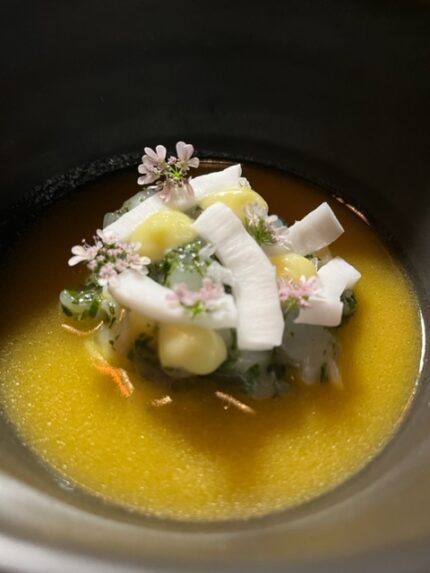
Lunario — The restaurant has 4 or 6 course menus paired which you can choose to have paired with wine. This was another fantastic meal with the pairings incredibly well considered.
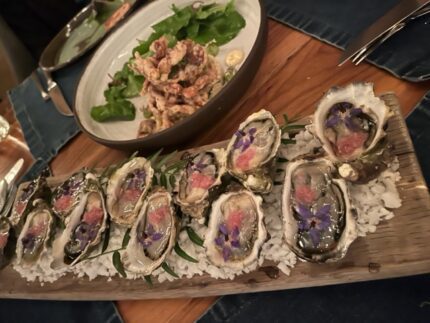
Deckmans — Another great Michelin Star chef, Drew Deckman, works to operate a continually strives to run a sustainable, community restaurant with an outside kitchen. The guiding theme is sustainability but done in a way that showcases the fresh ingredients of Mexico. The food is just so good.
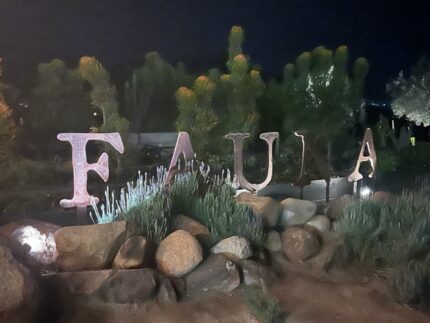
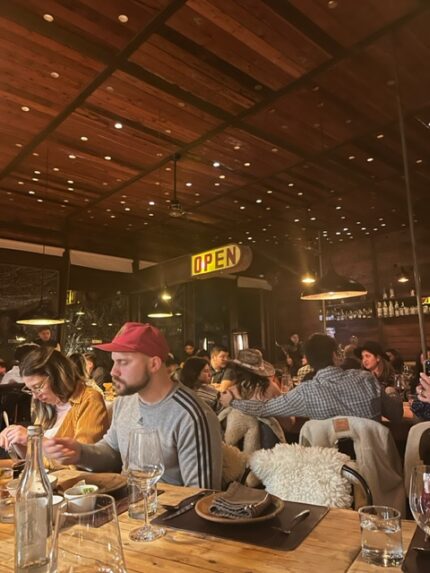
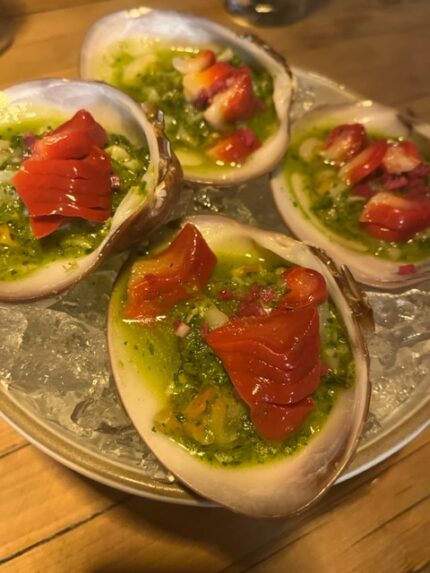
Fauna offers long table seating running from the inside to the outside of the restaurant. The menu is simple, and you probably need one of your great servers to explain the intricacies to you. It is well worth the time spent.
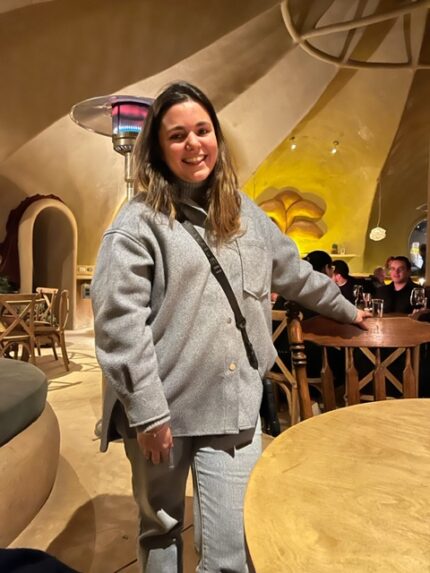
Bloodlust Wines (I’m including the write up from my trip mate who captured the write-up perfectly in her pick of the week) — A structure that looks a little like a clove of garlic and the inside is a little Star Wars early bar motif, but you can’t miss it. You’ll find inside the general manager Paulina who has great recommendations for your own Valle de Guadalupe wine tour.
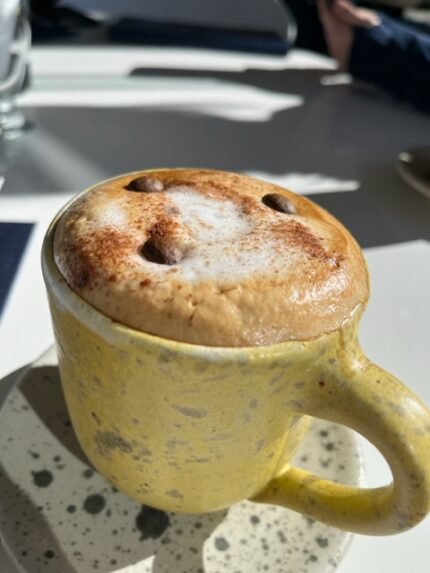
- The hotels are great. We stayed at La Cima del Valle. It was a nice hotel with a good breakfast and a nice spa. We loved the experience, the spa treatments, the food, and the hospitable staff.
- It was so fun to see the risks that winemakers took with blends. Some worked brilliantly, and some didn’t. But it was fun to see regions and individual winemakers take such big chances with some success.
- People going above and beyond. The people here were so authentic and so willing to go above and beyond to make sure that people were safe. I haven’t talked yet about the roads and the challenges we faced, but we found strangers willing to make sure we didn’t hit any obstacles.
- The mountains/sea make a difference – location, location, location is the key due to the unique terrain and terroir. Because the temperature can shift drastically, bring layers. A majority of restaurants are located outside, so in January, pack layered winter gear to stay warm.
Granted we went during the offseason, which always can paint a very different picture. There were a few key things you need to be aware of before you plan your trip.
- Navigating wineries, restaurants and wine bars isn’t as easy as typing an address into Waze or Google. Many of the places we visited were literally off the beaten path meaning we were driving on dirt roads that were at times, treacherous. If you’ve done Italian wineries, it’s very similar. Granted we were in a nice Tesla, owned by our friend, Allison, which weathered everything that we threw in its way. But a jeep or a four-wheel vehicle would make it easier and if you are flagged down on a dark road, there’s likely to not be a malicious intent — it’s someone trying to warn you about water ahead.
- Border crossing timing is unpredictable, and you’re crossing back to the Americas could be two hours or more. If you happen to have Global Entry, you can make it easier by registering your car. It allows Global Entry members to use Trusted Traveler lanes at the land borders for entry into the United States via NEXUS/SENTRI lanes at the border. However, everyone in the car not only needs to have Global Entry status but needs to have a physical card to present. If you only have a number or passport, it will result in a black mark against your Global Entry — several strikes will cost you up to $5K. Even if you have Global Entry and you rent a car, you are not able to use this option.
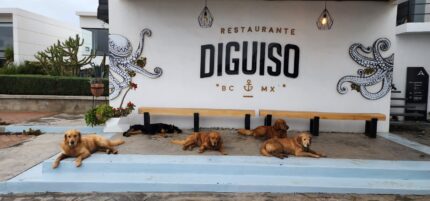
- Dogs are a man’s best friend in the Valle. I personally love it as they are part of the families, landscape and culture. But if you are the kind of person that has issues stepping over several dogs as you enter a nice hotel lobby, know this is not your kind of holiday. And this is their house, not yours.
Granted this was a girl’s trip of writer’s who needed time to rest, relax and recoup. However, a region with a great story inspires me to write. I can’t wait to go back and learn more about a region I predict will be one of the emerging wine regions that will be putting its stamp in the wine world.


